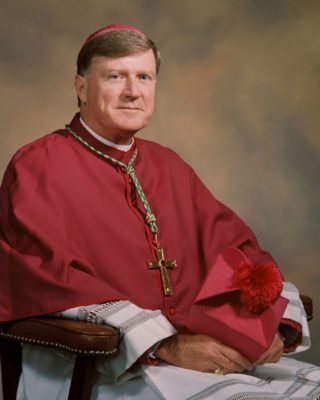August 25, 2020
Responsibilities and authority of an apostolic administrator
REGIONAL
Staff report

Bishop Robert J. McManus of Worcester, Mass., newly appointed apostolic administrator of the Springfield Diocese, is pictured in an undated photo. (CNS photo/courtesy Diocese of Worcester)
SPRINGFIELD – Today’s appointment of Worcester Bishop Robert J. McManus as apostolic administrator of the Springfield Diocese begins a time period of sede vacante, the Latin term for “the seat being vacant,” until a new bishop is appointed and installed.
While Bishop McManus will be responsible for the administration of the Springfield Diocese during this time, there are some limitations to his authority. For example, an apostolic administrator cannot appoint pastors unless the diocese has been without a bishop for more than a year.
For some actions, such as selling diocesan property, an apostolic administrator would need the consent of the College of Consultors and the Diocesan Finance Council if the value of the property falls within certain minimum and maximum amounts. An apostolic administrator also needs the consent of the College of Consultors to call candidates for ordination to the diaconate and the priesthood.
Some diocesan positions, including vicars general and other vicars, cease during the time of the “vacant seat.” Others deemed necessary for the operation of the diocese remain, including chancellor, judicial vicar and diocesan finance offer.
A complete description of the authority and responsibilities of an apostolic administrator can be found at this link: http://diospringfield.org/10103-2/.


 Facebook
Facebook Youtube
Youtube
